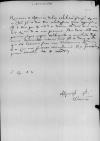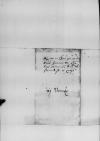Letter #1958
Ermland (Warmia) Chapter to Ioannes DANTISCUSFrauenburg (Frombork), 1538-11-01
| received [1538]-11-03 Manuscript sources:
| ||||
Text & apparatus & commentary Plain text Text & commentary Text & apparatus
Reverendissimo in Christo Patri et Domino, domino
Reverentiae et observantiae debita exhibitione praemissa.
Reverendissime in Christo Pater et Domine, domine colendissime.
Quia responsum
Cui nos sinceriter commendamus.
Ex
Eidem Reverendissimae Dominationi Vestrae obsequentissimum


 BCz, 1597, p. 216
BCz, 1597, p. 216